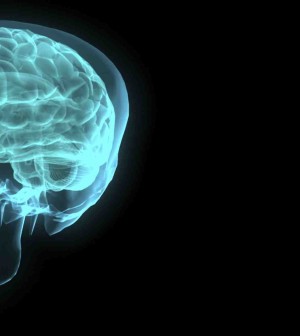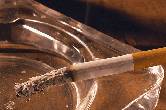- The Best Time of Day to Drink Bone Broth to Maximize Health Benefits
- 8 Ways to Increase Dopamine Naturally
- 7 Best Breads for Maintaining Stable Blood Sugar
- Gelatin vs. Collagen: Which is Best for Skin, Nails, and Joints?
- The Long-Term Effects of Daily Turmeric Supplements on Liver Health
- Could Your Grocery Store Meat Be Causing Recurring UTIs?
- Are You Making This Expensive Thermostat Error This Winter?
- Recognizing the Signs of Hypothyroidism
- 10 Strategies to Overcome Insomnia
- Could Artificial Sweeteners Be Aging the Brain Faster?
Smoking May Dull Ability to Sense Bitter Tastes


Coffee’s full taste might be lost on smokers and former smokers, a new study suggests.
Researchers in France found that smokers and former smokers were less able to detect bitter tastes than nonsmokers. They theorized that it’s the result of exposure to toxic tobacco chemicals, although they didn’t establish a direct cause-and-effect relationship.
The researchers tested how well about 450 people could recognize the four basic tastes — sweet, sour, bitter and salty — and the intensity of each taste. The participants were divided into groups of smokers, former smokers and nonsmokers.
Smoking had no impact on the ability to detect salty, sour or sweet tastes, but did affect the ability to detect the bitter taste of caffeine, the study found. Typically, the tongue’s bitter receptors are able to detect this taste at very low concentrations.
About one in five smokers could not correctly identify the bitter taste of caffeine, compared with about one-quarter of former smokers and 13 percent of nonsmokers, according to the study, which was published online in the March issue of the journal Chemosensory Perception.
A buildup of certain compounds from tobacco smoke might hamper the regeneration of taste buds and reduce a person’s ability to detect some types of tastes even after they quit smoking, said study leader Nelly Jacob and her colleagues from Pitie-Salpetriere Hospital in Paris.
“We consider that the perception of bitter taste should be examined more closely, both as a tool for smoking cessation or for preventing smoking initiation,” Jacob said in a journal news release. “More generally, it would be worthwhile to consider the role of chemosensory perceptions in smoking behavior.”
It was already known that smoking can cause a loss of taste, but it wasn’t clear whether the full taste range returns to normal after a person quits smoking or how long that might take, the researchers said.
More information
The U.S. National Institute on Deafness and Other Communication Disorders has more about taste disorders.
Source: HealthDay
Copyright © 2026 HealthDay. All rights reserved.










